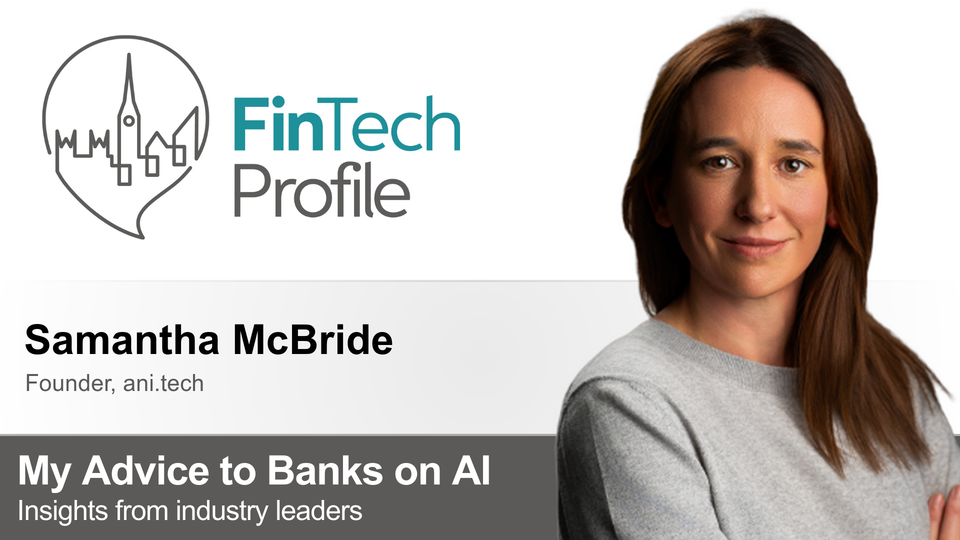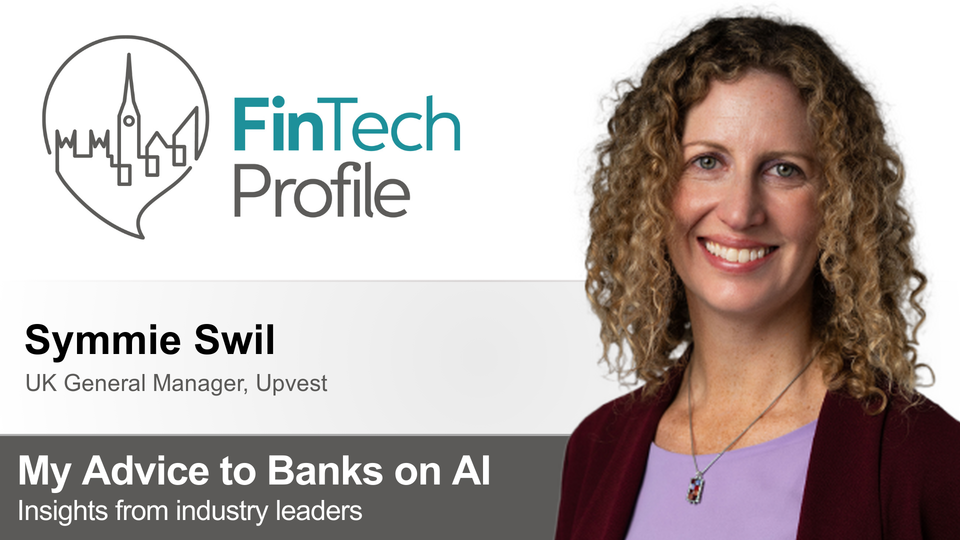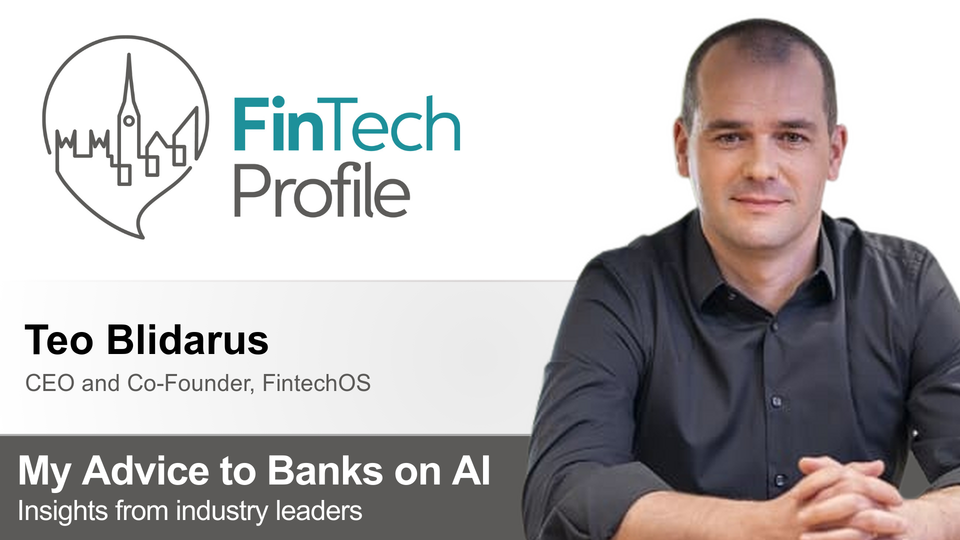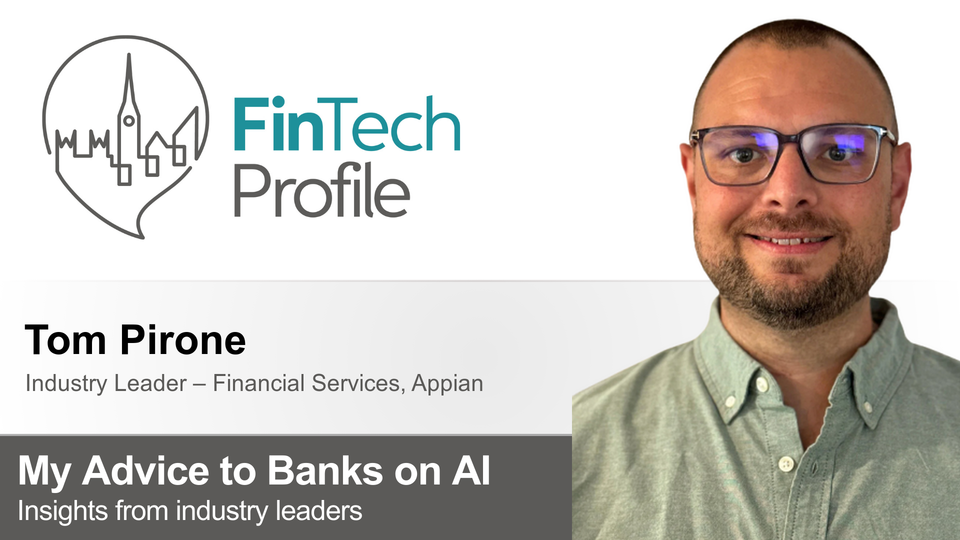Joaquim De La Cruz, CEO & Co-founder of Flanks
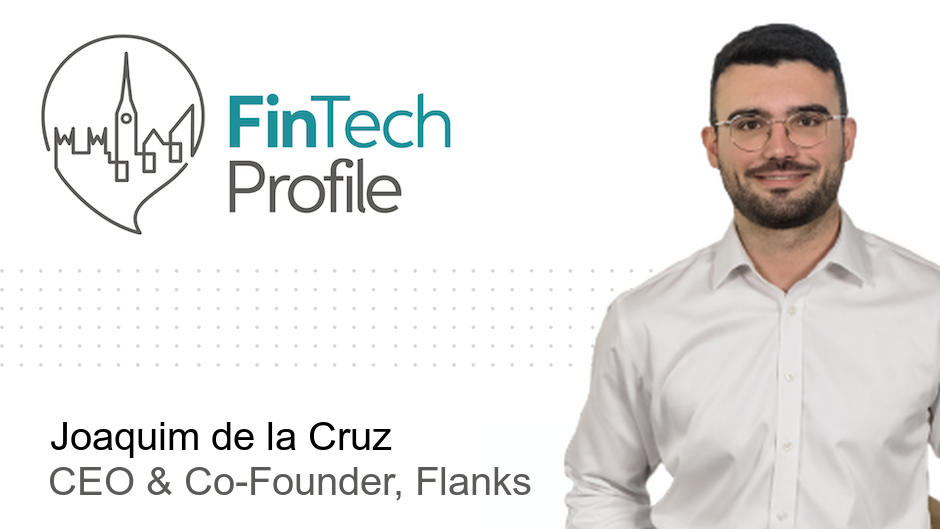
Today we're meeting Joaquim De La Cruz, CEO & Co-founder at Flanks. They specialise in redefining the wealth management industry through data-led insights and automation, empowering thousands of advisors to deliver personalised services to a broader range of investors.
Over to you Joaquim - my questions are in bold:
Who are you and what's your background?
I'm Joaquim De La Cruz, CEO and Co-founder of Flanks. My background is quite unique actually - I'm a computer engineer from Universitat Politècnica de Catalunya, but before I got into tech full-time, I was a professional dancer, training for world championships. That's always a fun fact - going from professional dancer to CEO.
My tech journey started while I was still studying. I worked at a consulting firm here in Barcelona, and then I joined a startup that was basically like Instacart but for Spain - you could buy from different supermarkets in one place. That's where I really got into the idea of aggregating things and putting them together in one platform.
Throughout the past decade, I've contributed to founding several tech projects, but Flanks is definitely my main focus since we launched in 2019. What's been amazing is the recognition we've received - I was honoured to be named to Forbes' "30 Under 30" list for Europe in April 2024, being the only Spaniard in the finance category. We've also been recognised by LinkedIn as one of the Top Startups in Spain and selected by Google for their AI-first programme. More recently, we were also voted by Sifted as one of the 14 wealthtechs to watch according to VCs.
What is your job title and what are your general responsibilities?
I'm the CEO and co-founder at Flanks. Essentially, I lead the entire company - we're around 90 people now serving about 100 clients around the world. My day-to-day involves everything from revenue strategy to business development, but fundamentally I'm focused on our mission to democratise access to the wealth management industry.
I work very closely with my co-founders - Álvaro Morales, who was the Global Head of Santander Private Banking and brings incredible industry expertise, and Sergi Lao, who comes from the cybersecurity area which is super important for what we do. My role is really about bringing together the tech vision with the business strategy and making sure we're solving real problems for our clients.
Can you give us an overview of your business?
Flanks is redefining wealth management by making it simple and seamless. We've built our all-in-one modular solution that automatically gathers high-quality data across all asset classes globally and consolidates it into 360° wealth reports that are custom-branded for our clients.
Think about it this way - a lot of wealth managers have sophisticated investment strategies and powerful analytical tools, but they're making critical decisions based on incomplete, outdated, or inconsistent data scattered across different banks, currencies, and jurisdictions. It's like having the finest instruments but unreliable readings. We don't just eliminate manual processes - we solve the underlying data integrity problem, providing clean, real-time, unified information that transforms those sophisticated tools into genuinely powerful decision-making engines.
The Flanks solution is a modular solution designed to streamline workflows for all players across the wealth management ecosystem. At the core is Flanks Aggregate, our foundational module that centralises and standardises fragmented financial data. For those seeking deeper insight and analysis, Flanks Lume can be added to enrich that data and enable faster, higher-quality, and more personalised advice. We work with banks, family offices, pension providers, external asset managers, and tech companies across Europe, providing a modular, end-to-end solution tailored to the evolving needs of the industry.
What makes us unique is our agnostic methodology - we can connect to any custodian globally, we ensure data quality and granularity so everything is ready-to-use, and we act as an extension of our clients' teams. We're not just another data provider; we're transforming how the entire industry operates.
Tell us how you are funded?
We founded Flanks back in 2019, shortly after going through SeedRocket — one of the most respected startup accelerators in Spain. That's actually where I met Álvaro Morales, former Global Head of Santander Private Banking, who eventually joined us as a co-founder. Together with Sergi Lao, we shaped the vision of what Flanks is today.
We started with a modest seed investment of €200,000, which allowed us to build the early version of our product. Then, in 2021, we raised €2.3 million in our first funding round. That was a crucial step in professionalising the business and expanding our client base.
In 2023, we closed a Series A round of €7.4 million led by Earlybird, JME Ventures and 4Founders, which enabled us to enter key markets like the UK and France. And earlier this year, in 2025, we raised another €14 million in an Equity Round led by Motive Ventures and Battery Ventures — with strong follow-on support from our existing investors. That brings our total funding to nearly €24 million.
Thanks to this journey, we've been able to grow a highly specialised team, invest heavily in product and compliance, and position ourselves as a leading wealth data infrastructure player across Europe.
What's the origin story? Why did you start the company? To solve what problems?
It all started in 2019 when I was living with flatmates and struggling to manage everyone's contributions for shared expenses. I thought, "There has to be a better way to do this using technology." So Sergi - my best friend from university - and I built an app using open banking technology to automatically split costs between flatmates.
We were inspired by The Social Network movie, thinking it would be easy to raise money. We started pitching to business angels without even having a proper business plan! Most turned us down, but one investor saw potential - not in the app itself, but in the infrastructure we'd built to connect with banks. He suggested we monetise that instead.
We took his advice and raised €100K in pre-seed funding, but we soon realised the business model had limitations. That's when we met Álvaro at an accelerator programme. He said, "Look, I'm seeing exactly the same need you're trying to solve in retail banking, but in the private banking industry. Maybe we can do something together."
I remember thinking, "No way, there must already be a solution for that." But Álvaro said, "Come with me, let's visit a potential client." We visited them and they had like 20 people doing exactly what our algorithm could do with just a couple of lines of code. That's when I realised we could solve a massive problem in wealth management that nobody else was addressing properly.
Who are your target customers? What's your revenue model?
Our target customers are wealth managers across the spectrum - banks, family offices, multi-family offices, external asset managers, tech solutions as portfolio trackers and also pension plan providers.
We serve clients globally but we're mainly focused on the European market right now - Spain, France, and Luxembourg are our main markets. We're seeing great traction especially with family offices and private banks who are dealing with complex, multi-jurisdiction client portfolios. The next market we are looking to target is the UK.
Our clients appreciate that we can handle everything securely and seamlessly - from simple retail accounts to massive accounts worth hundreds of millions across all kinds of products and currencies. We've helped them eliminate manual processes entirely - imagine having 20 people doing data reconciliation work that we can automate completely.
The beauty of our solution is that it allows these wealth managers to focus on what really matters - building relationships with their clients and providing personalised advisory services. In today's market where neo-brokers are offering zero-commission trading, the real value is in that personal relationship and holistic advice.
If you had a magic wand, what one thing would you change in the banking and/or FinTech sector?
If I had a magic wand, I would eliminate the industry's addiction to Excel spreadsheets and manual processes. It's 2025, and we still have wealth managers spending hours every day copying and pasting data between systems, reconciling accounts manually, and creating reports by hand. It's absolutely crazy.
The wealth management industry has been left behind by the technology revolution. While retail banking has seen massive investment in digital infrastructure, private banking and wealth management are still operating like it's 1995. This creates a huge opportunity for companies like us, but it's also holding back the entire industry from serving clients better.
What I'd really love to see is a shift from this product-focused mentality to a truly advisory-focused approach that is backed by high-quality data. Instead of trying to sell clients the same products everyone else has, wealth managers should be able to provide hyper-personalised advice based on a complete view of their clients' wealth. That's the future we're building towards.
What is your message for the larger players in the Financial Services marketplace?
My message to the CEOs and CIOs of the largest banks is simple: the shift is happening whether you're ready or not. Every day in the newspapers, you see a new neo-broker offering zero-commission trading and super cheap investment products. Your clients are already using these platforms.
But here's the thing - you shouldn't see this as a threat. You should see it as an opportunity. The neo-brokers are doing the heavy lifting of democratising access to investment products. Your opportunity is to move up the value chain and become the trusted advisor who helps clients make sense of all these options.
The banks that will win are the ones that embrace technology to enhance their advisory capabilities rather than trying to compete on product pricing. You need to shift from trying to sell products to providing hyper-personalised advisory services. And to do that effectively, you need a complete view of your clients' wealth - which is exactly what we enable.
The regulatory environment is also pushing in this direction. With RIS and PSD3 coming, you're going to be required to have this holistic view anyway. The question is: do you want to build this capability in-house over the next few years, or do you want to partner with a company that's already solved this problem.
The $84 trillion wealth transfer is bringing a dual generational shift - not just in clients inheriting wealth, but in advisers themselves. With 70% of current advisers retiring, you'll need tech-savvy advisers who mirror your new clients' digital expectations. Success means transforming both your advisory force and service model simultaneously.
Where do you get your Financial Services/FinTech industry news from?
I regularly read the Financial Times, which I consider a key reference for financial services news globally. I also follow Citywire, FundsPeople, and Funds Society to stay updated on asset management trends and any key developments in the market.
Can you list 3 people you rate from the FinTech and/or Financial Services sector that we should be following on LinkedIn, and why?
Here are three people I highly recommend following on LinkedIn for anyone interested in FinTech and Financial Services:
- Mahir Eyvazov
Mahir shares some of the most insightful content on Family Offices, particularly at the intersection of tech, investing, and private markets. His posts often highlight key trends and frameworks that are super relevant for the next generation of investors. - Marcel van Oost
Marcel curates and comments on the most relevant news in the FinTech space globally. His feed is a goldmine for staying up to date with emerging startups, funding rounds, and strategic partnerships. - Francois Botha
Founder of Simple, Francois writes a lot about innovation in the Family Office ecosystem and the future of wealth. His perspective blends tech, governance, and long-term vision—always worth reading.
What FinTech services (and/or apps) do you personally use?
I personally use Revolut for daily banking and international transfers, Trade Republic for investing in ETFs and stocks, and Getquin as a portfolio tracker and community for retail investors. Each of these platforms reflects how FinTech is simplifying access to financial services and empowering users to manage their finances more independently.
What's the best new FinTech product or service you've seen recently?
Lately I've been really impressed by Claude for Financial Services. It's Anthropic's AI solution tailored for the finance industry, and it's super useful for tasks like due diligence, memo writing, or even portfolio analysis. What I really like is how it integrates with tools like Snowflake, PitchBook, and S&P Global—everything in one place, and with proper data governance. It feels like a game-changer for productivity in financial teams.
Finally, let's talk predictions. What trends do you think are going to define the next few years in the FinTech sector?
I think we're going to see three major trends that will completely reshape the industry.
First, the regulatory revolution in Europe is going to be game-changing. PSD3 and the FIDA regulations are going to create massive opportunities for companies that are prepared. These regulations will require financial institutions to have a complete view of their clients' financial data, which is exactly what we've been building towards. The companies that adapt early will have a huge competitive advantage.
Second, we're moving from a product-centric model to an advisory-centric model. The race to the bottom on pricing is essentially over - everyone has access to cheap ETFs and zero-commission trading. The real value is going to be in providing intelligent, personalised advice. This is where AI and data analytics will become crucial. You need to be able to process massive amounts of data and turn it into actionable insights.
Third, I think we'll see the emergence of what I call "wealth infrastructure" companies. Just like how Stripe became the infrastructure for payments, there will be companies that become the infrastructure for wealth management. These companies will handle all the complex backend processes - data aggregation, reconciliation, compliance, reporting - so that wealth managers can focus on what they do best: advising clients.
Thank you very much, Joaquim!
Read more about Joaquim De La Cruz on LinkedIn and find out more about Flanks at flanks.io.

